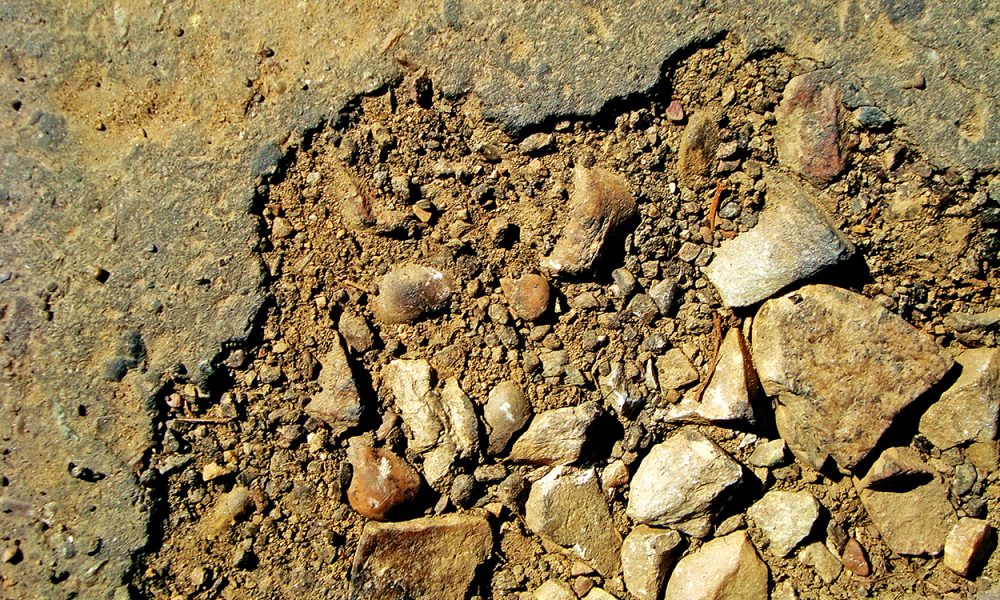
By Pat Caldwell
Malheur Enterprise
ONTARIO – Oregon’s roads aren’t in great shape, and they won’t get any better unless more money is collected and spent on the transportation system, state Rep. Cliff Bentz said recently.
Bentz, who represents Malheur County in Oregon’s House District 60, said Oregon’s roads – including hundreds of miles of asphalt in rural areas like this county – are either in bad shape or soon will be.
“I think it is important that everyone that wants transportation to continue as nicely as it currently works needs to recognize that our county roads are going to hell,” the Ontario Republican said.
The problem of maintaining roads can be especially acute in rural counties where funding is limited even as costs continue to climb.
According to the National Association of Counties, counties in Oregon are big players when it comes to the maintenance of roadways. Statistics from NAC show that Oregon counties maintain more than 32,000 miles of public roadways.
Also, Oregon counties are accountable for about 45 percent of the bridges in the state. A 2013 report by the American Society of Civil Engineers showed that 23 percent of Oregon’s bridges are either deficient or obsolete.
According to the Association of Oregon Counties, individual counties in Oregon face a $505 million deficient every year in an effort to maintain and improve roadways.
The road infrastructure issue isn’t a new challenge for local and state officials and it remains a lingering political problem for Oregon lawmakers who were unable to craft a comprehensive transportation package during the last full legislative session.
Yet the compelling, key question is where will the extra money come from to help spearhead critical road upgrade projects in places like Malheur County.
Currently, Oregon’s roads are funded in several ways including: vehicle registration and title fees; driver license fees; vehicle fuel taxes and the weight-mile tax. The revenues from those sources are deposited into the State Highway Fund. Now, Oregon gas tax stands at 30 cents per gallon.
Bentz noted the gas tax revenues are divvied up between the state, the counties and Oregon cities. About 30 percent of the gas tax revenue returns to the counties but that amount is not keeping up with maintenance needs for area roads, he said. One reason is that fewer people are driving, thus translating into less revenue.
“The amount of fuel being sold, until recently, has been dropping. The increase anticipated by more people driving and more fuel being consumed has changed. There are fewer people driving,” Bentz said.
Other factors in the road repair quandary are electric cars and vehicles that get higher gas mileage, he said.
“In other words, cars buy less fuel and drive more miles. That’s more wear and tear while less is paid for their use,” he said.
Construction costs – for materials such as asphalt – continue to climb, he said.
Locally, Malheur County roads remain, for the most part, in stable condition, according to Road Master Richard Moulton. Yet their condition will not remain secure forever, he said.
“They are getting worse. The county is getting less money every year. The county is losing ground every year,” he said.
Moulton also agreed with Bentz regarding construction cost play a role in long-term plans to refurbish local roadways.
“The price of everything is going up,” he said.
A failure to address the infrastructure issue creates more problems in the future Bentz said.
Roads “don’t take care of themselves,” he said.
One solution to the road maintenance problem could be a boost in the state gas tax, a move Bentz said may be necessary.
“It is easy to demonize taxation. But how are we going to pay for the roads? Is that money going to show up magically?” he asked. “If you have to raise the gas tax, then you have to do it.”
Yet, the Ontario lawmaker knows any kind of tax boost will be a hard sell, especially in rural counties like Malheur. That’s why, he said, he wants as much input from area voters as he can gather before he decides to search for more revenue for area roads.
“They (voters) are going to have to tell me to raise taxes. My job is to represent them. If they come in and say they are fine with our roads going to hell, then great. My job is to represent them and point out things and say: Is this what you want?”
Malheur County Judge Dan Joyce said he is philosophically opposed to any tax increase, but admitted when it comes to roads, a better way must be found to pay for their upkeep.
“Where do you get the money? Nobody wants to raise taxes,” he said.
However, Joyce said he might be open to a short-term gas tax hike.
“Depends on how much it is and the proportion of that (revenue) that comes back to Malheur County. You got to make an investment somewhere whether you like it or not or we go back to gravel,” he said.
Bentz said lawmakers are in the preliminary stages of developing a transportation plan package and a gas tax boost will probably be part of the blueprint. Yet he said any hike will have to be carefully crafted.
“It will have to be gradual and whatever we do, it would be phased in,” he said.




